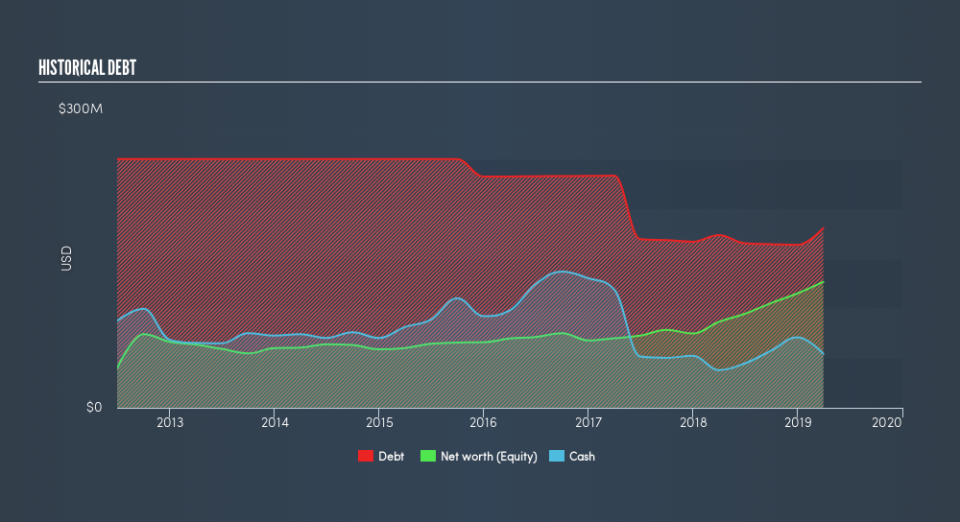Commercial Vehicle Group, Inc. (NASDAQ:CVGI): Time For A Financial Health Check

Want to participate in a short research study? Help shape the future of investing tools and you could win a $250 gift card!
Investors are always looking for growth in small-cap stocks like Commercial Vehicle Group, Inc. (NASDAQ:CVGI), with a market cap of US$223m. However, an important fact which most ignore is: how financially healthy is the business? Assessing first and foremost the financial health is essential, since poor capital management may bring about bankruptcies, which occur at a higher rate for small-caps. Let's work through some financial health checks you may wish to consider if you're interested in this stock. Nevertheless, these checks don't give you a full picture, so I’d encourage you to dig deeper yourself into CVGI here.
CVGI’s Debt (And Cash Flows)
CVGI has sustained its debt level by about US$181m over the last 12 months which accounts for long term debt. At this constant level of debt, the current cash and short-term investment levels stands at US$54m , ready to be used for running the business. On top of this, CVGI has produced US$55m in operating cash flow in the last twelve months, leading to an operating cash to total debt ratio of 30%, signalling that CVGI’s debt is appropriately covered by operating cash.
Can CVGI pay its short-term liabilities?
Looking at CVGI’s US$140m in current liabilities, the company has maintained a safe level of current assets to meet its obligations, with the current ratio last standing at 2.38x. The current ratio is the number you get when you divide current assets by current liabilities. For Machinery companies, this ratio is within a sensible range as there's enough of a cash buffer without holding too much capital in low return investments.
Is CVGI’s debt level acceptable?
CVGI is a highly-leveraged company with debt exceeding equity by over 100%. This is a bit unusual for a small-cap stock, since they generally have a harder time borrowing than large more established companies. We can test if CVGI’s debt levels are sustainable by measuring interest payments against earnings of a company. Ideally, earnings before interest and tax (EBIT) should cover net interest by at least three times. For CVGI, the ratio of 4.15x suggests that interest is appropriately covered, which means that lenders may be inclined to lend more money to the company, as it is seen as safe in terms of payback.
Next Steps:
Although CVGI’s debt level is towards the higher end of the spectrum, its cash flow coverage seems adequate to meet obligations which means its debt is being efficiently utilised. This may mean this is an optimal capital structure for the business, given that it is also meeting its short-term commitment. Keep in mind I haven't considered other factors such as how CVGI has been performing in the past. You should continue to research Commercial Vehicle Group to get a better picture of the small-cap by looking at:
Future Outlook: What are well-informed industry analysts predicting for CVGI’s future growth? Take a look at our free research report of analyst consensus for CVGI’s outlook.
Valuation: What is CVGI worth today? Is the stock undervalued, even when its growth outlook is factored into its intrinsic value? The intrinsic value infographic in our free research report helps visualize whether CVGI is currently mispriced by the market.
Other High-Performing Stocks: Are there other stocks that provide better prospects with proven track records? Explore our free list of these great stocks here.
We aim to bring you long-term focused research analysis driven by fundamental data. Note that our analysis may not factor in the latest price-sensitive company announcements or qualitative material.
If you spot an error that warrants correction, please contact the editor at editorial-team@simplywallst.com. This article by Simply Wall St is general in nature. It does not constitute a recommendation to buy or sell any stock, and does not take account of your objectives, or your financial situation. Simply Wall St has no position in the stocks mentioned. Thank you for reading.

